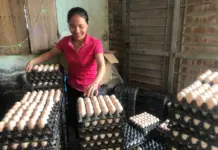Although he is 86 now, he seems not to be affected by time, still showing the clear-mindedness, quickness and skillfulness of a veteran martial artist. With his good memory, soft, placid and clear-cut voice, he started telling us about the road leading him to the martial arts. There always existed in him two different characters “Cuong nhu phoi trien” (firmness in combination with flexibility) of two different martial arts schools – Vinh Xuan and Vovinam in Vietnam.
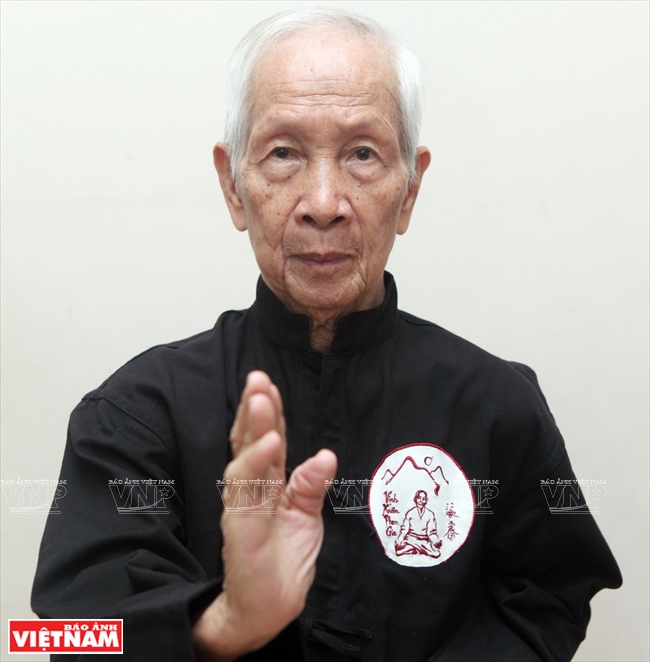 Martial arts master Phan Duong Binh. 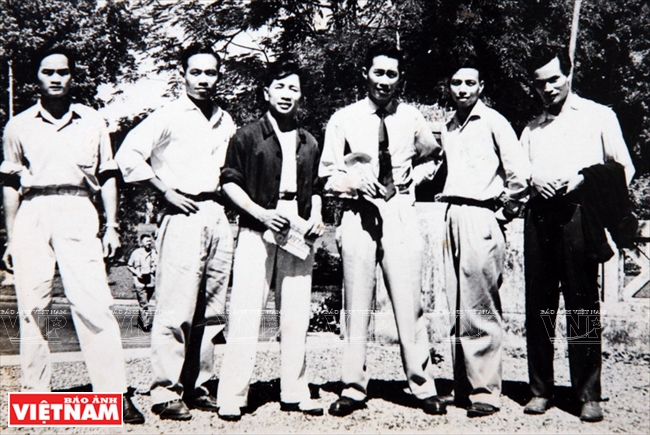 Martial arts master Phan Duong Binh (in black dress) and Nguyen Loc (right) with Vovinam martial artists of the first generation. 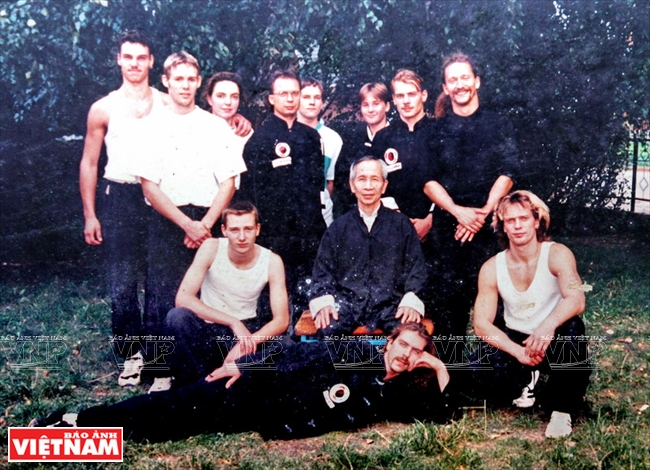 Phan Duong Binh and his followers in Germany. 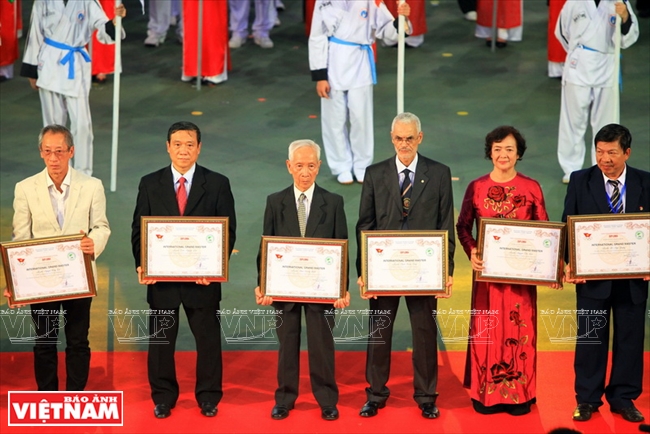 Martial arts master Phan Duong Binh receives the Great Martial Art Master diploma presented by the World Federation of Vietnamese Traditional Martial Arts. 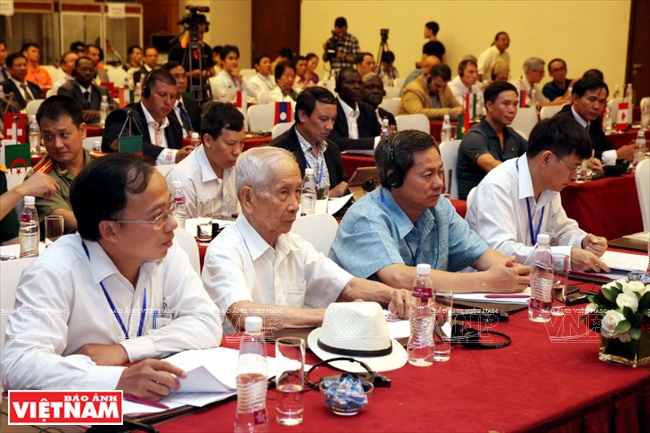 Phan Duong Binh attends the meeting to found the World Federation of Vietnamese Traditional Martial Arts. 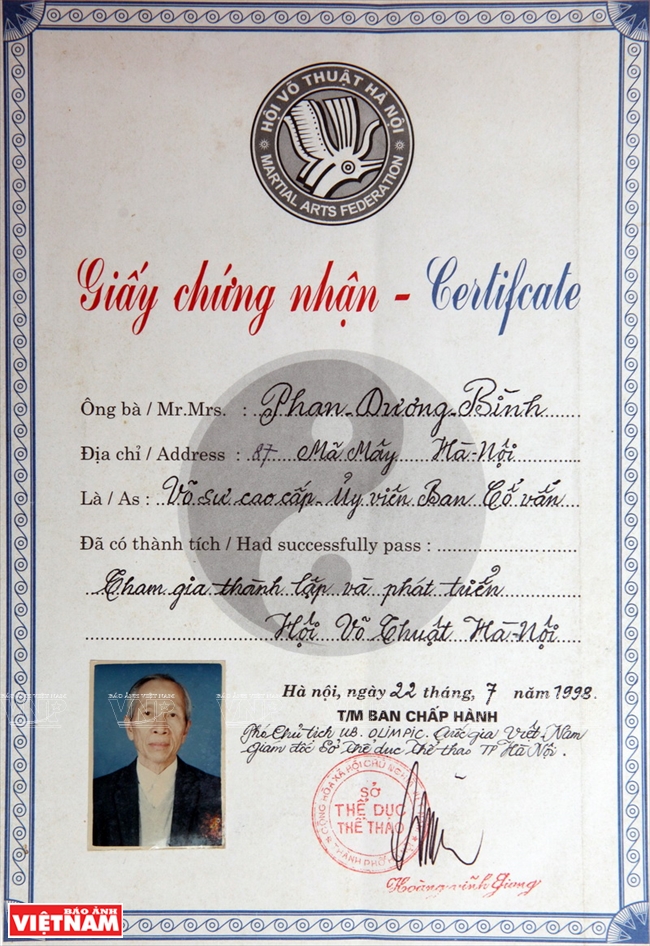 Certificate of martial arts master Phan Duong Binh’s participation in the establishment and development of the Hanoi Martial Arts Association. 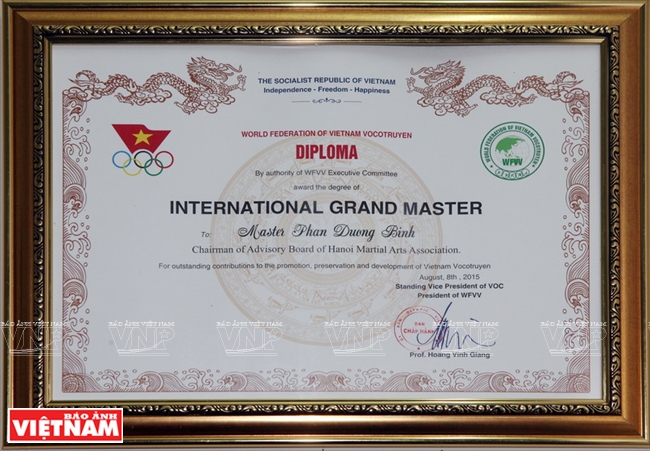 Great Martial Art Master diploma presented to Phan Duong Binh by the World Federation of Vietnamese Traditional Martial Arts. |
Vinh Xuan School was brought to Vietnam by martial arts master Tsi-kong, a famous Chinese martial artist in 1907. If Tsi-kong is the person who laid the first bricks for the development of Vinh Xuan – Vietnam School, Phan Duong Binh is among those who have maintained and developed it into a big martial arts school as a national treasure of martial arts.
Prompted by his childhood’s “innocent” dream to become like the noble-minded heroes in cloak-and- sword novels, he, when accepted by Tsi-kong as his discipline, became deeply engrossed in the martial arts and endowed with inborn talents, was imparted with the Vinh Xuan arts of fighting. As a result, he soon became a follower of the founding father of Vinh Xuan – Vietnam School. He was famous far and wide at home and abroad, with a large number of faithful followers in Vietnam as well as many countries in the world.
However, martial arts master Phan Duong Binh did not stop at this. His deep attachment to the martial arts spurred him to search for the quintessence of other martial arts schools, especially the Vovinam school which was founded in 1938 by martial arts master Nguyen Loc and has, so far, been practiced in more than 60 countries around the world.
Vovinam was developed on the basis of Vietnamese traditional wrestling in combination with the genius of other arts of fighting worldwide. With the principle of “Cuong nhu phoi trien” (firmness in combination with flexibility), Vovinam is considered a martial arts school reflecting the Vietnamese people’s spirit and character. When he came to martial arts master Nguyen Loc’s training school, which was then attended by young Hanoians, Phan Duong Binh was completely bewitched by Vovinnam and applied to be a part of the school.
For martial arts master Nguyen Loc, after witnessing the extremely lithe martial- art movements demonstrated by Phan Duong Binh, he invited the latter to stay at his training center and work as a tutor. Through this, Phan Duong Binh thoroughly understood the personality of master Nguyen Loc as well as Vovinam, especially the noble values of this martial arts school through Nguyen Loc’s confidence, “As martial arts trainees, they must respect the honour of Vietnamese martial artists, understand their tasks and volunteer to sacrifice themselves to the ideals of martial artists”.
Since then, Phan Duong Binh has devoted his whole life to the preservation and development of the martial arts school deeply bearing the disposition and spirit of the Vietnamese people. He is a representative of the Vovinam – Viet Vo Dao of the north, who has inherited and materialised martial arts master Nguyen Loc’s last aspiration to disseminate Vovinam to the south.
Nowadays, Vovinam has not only developed throughout southern Vietnam but also spread widely to various countries in the world. In 1995, he and martial artists in the Provisional Council of Overseas Vovinam – Viet Vo Dao Martial Artists issued a declaration to officially establish the Martial Artists Council to lead this martial arts school, which is the predecessor of the present-day Vovinam World Federation. So far, Vovinam, the only Vietnamese martial arts school, is in more than 60 countries in the world. This success is attributed to the great contributions of martial arts master Phan Duong Binh.
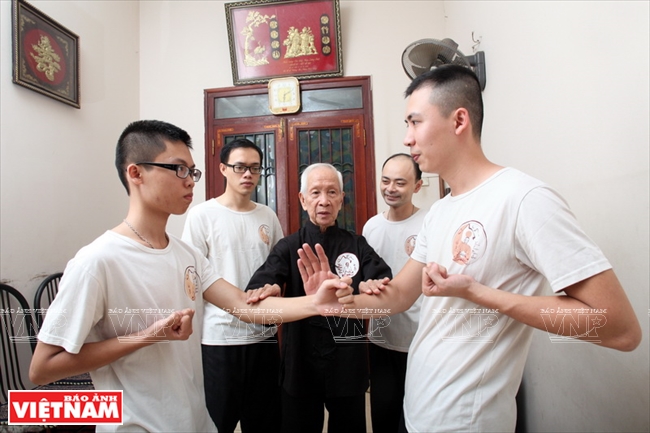 Martial art trainees are given instructions on various attacks in each training session by master Phan Duong Binh.  Trainees bow to the master after each class. 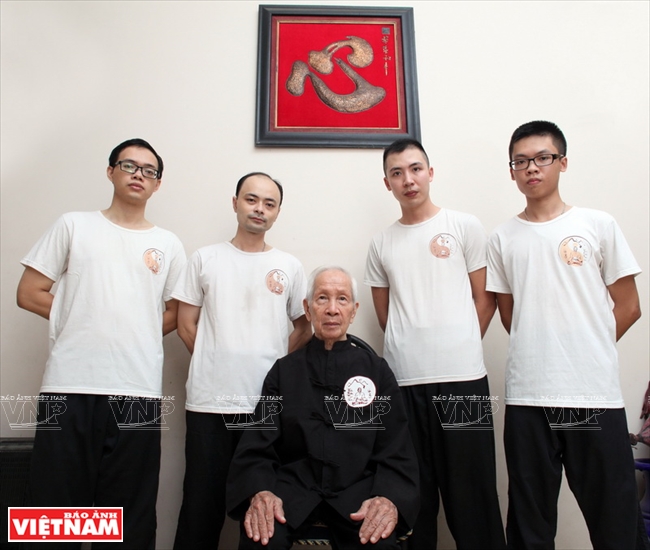 The master and his students of different generations. |
Despite his old age, martial arts master Phan Duong Binh does 30 minutes a day of “khi cong” (deep-breathing) besides teaching martial arts trainees at his home, of whom many have become Vinh Xuan and Vovinam martial arts masters. Perhaps, this can explain why Phan Duong Binh still maintains the clear-head and sharp-wit of a great martial arts master./.


